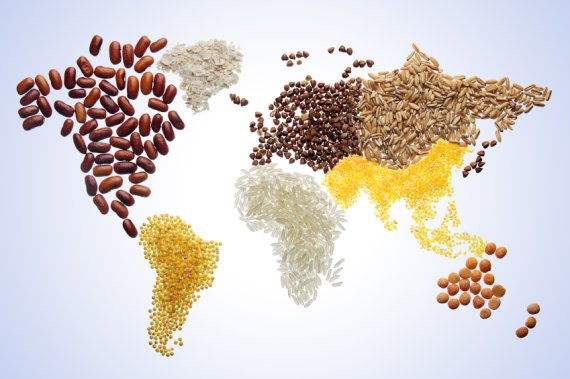In 2008 Saudi Arabia decided to reduce its grain production in the desert in order to safeguard the water supply for its cities. To make sure an adequate supply of food was maintained it decided to lend 5 billion dollars to companies to buy up land in South Sudan. According to Petra Hellegers, the new professor of Water Management who provides this example, this was Saudi Arabia’s way of buying both food and fresh water. Sudan is popular: its neighbouring country Egypt has bought land there for its own food production too. In the light of Darfur and his secret bank account in England, it is easy to see the Sudanese leader Omar al-Bashir as a corrupt king who is more interested in personal profit than in the welfare of his people. And it is precisely these kinds of leaders who are prepared to make lucrative deals at the expense of food security in their own countries. This kind of land grabbing is nothing new: during the colonial era it was also negotiated through corrupt kings. But it seems likely that the effect of land grabbing on food security is widely underestimated. The data about land grabbing come largely from GRAIN, an NGO that supports small farmers and opposes multinationals. Environmental economist David Zetland scrutinized these figures and notes that most of the African ‘land grabs’ actually take place in less corrupt countries. Many of them take the form of foreign investments in which the investors pay the market price for the land. It is not clear yet, either, who are the winners and who the losers in the land-grabbing game. In the Sudanese example it does seem clear that the Saudi people gain food and water at the expense of the rural South Sudanese. But is this also true, for example, for the 450,000 hectares of agricultural land in Mozambique that are used for large-scale production of energy crops? Maja Slingerland has done a lot of research in Mozambique in recent years, and thinks the jatropha hype is already a thing of the past. Many investors went bankrupt, and growing this crop turned out to be harder and less profitable than expected. Most small farmers whose land was bought up by the state are still growing their food crops on it. They are neither winners nor losers. In this example, the western investor is the loser and the African king the winner. Altogether, no more food is produced. But these are rough guesses at the consequences. To my knowledge, there is no Wageningen research on the direct impact of land grabbing. Considering the scale of the purchases and their potential effects on food security, that is remarkable.
Land grabbing
Now that the world population and the demand for food are rising, there is a growing scarcity of food, good agricultural land and water. This is driving countries such as China and Japan and western investors to buy up millions of hectares of agricultural land in developing countries. Land grabbing. NGOs working towards sustainable development…

